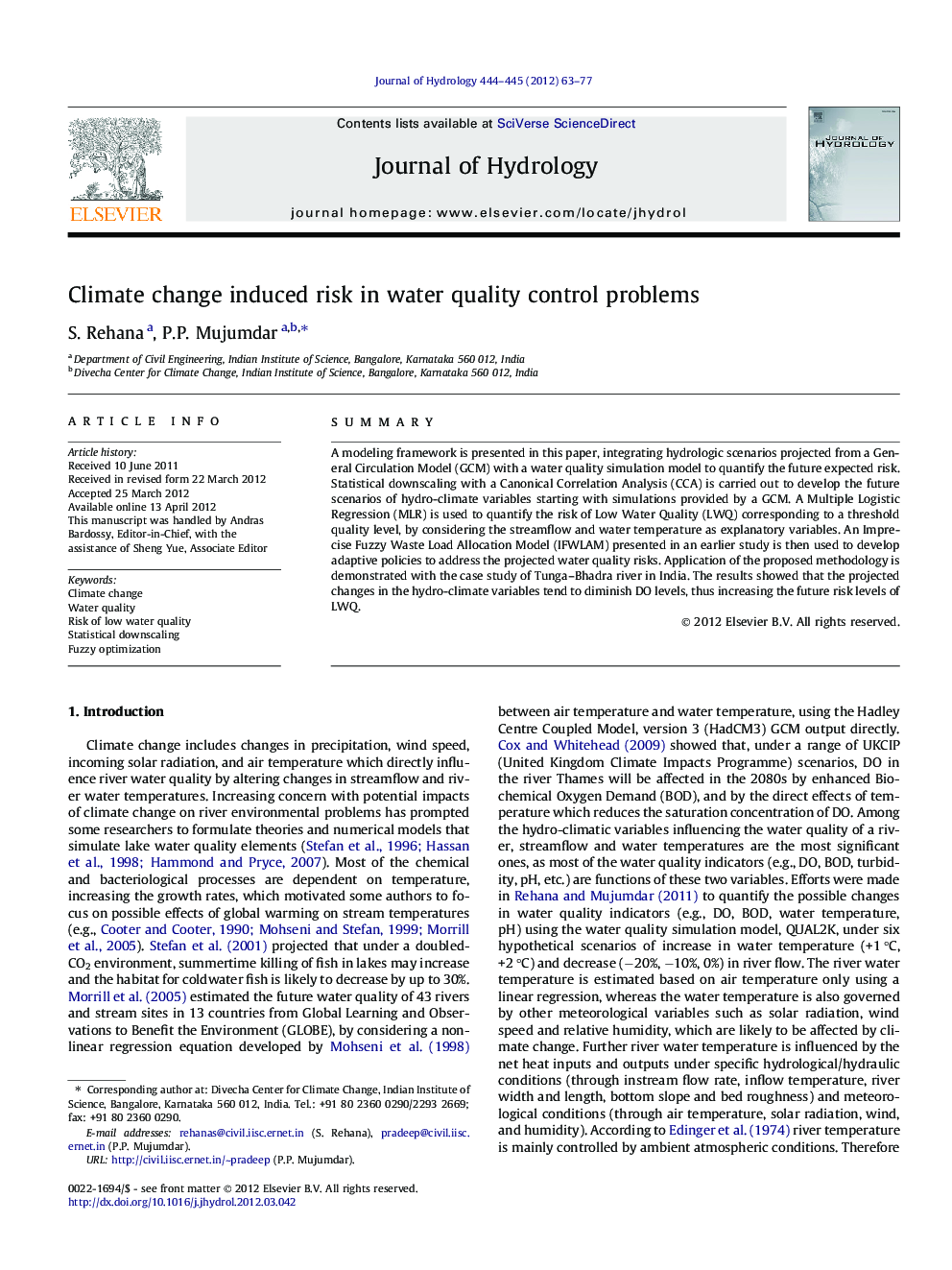| Article ID | Journal | Published Year | Pages | File Type |
|---|---|---|---|---|
| 4576915 | Journal of Hydrology | 2012 | 15 Pages |
SummaryA modeling framework is presented in this paper, integrating hydrologic scenarios projected from a General Circulation Model (GCM) with a water quality simulation model to quantify the future expected risk. Statistical downscaling with a Canonical Correlation Analysis (CCA) is carried out to develop the future scenarios of hydro-climate variables starting with simulations provided by a GCM. A Multiple Logistic Regression (MLR) is used to quantify the risk of Low Water Quality (LWQ) corresponding to a threshold quality level, by considering the streamflow and water temperature as explanatory variables. An Imprecise Fuzzy Waste Load Allocation Model (IFWLAM) presented in an earlier study is then used to develop adaptive policies to address the projected water quality risks. Application of the proposed methodology is demonstrated with the case study of Tunga–Bhadra river in India. The results showed that the projected changes in the hydro-climate variables tend to diminish DO levels, thus increasing the future risk levels of LWQ.
► Modeling framework to quantify the climate change induced risk in river water quality. ► Statistical downscaling using Canonical Correlation Analysis (CCA). ► Risk assessment with Multiple Logistic Regression (MLR). ► Minimization of climate change induced risk with an imprecise fuzzy optimization model. ► Application to an already stressed river system in India.
